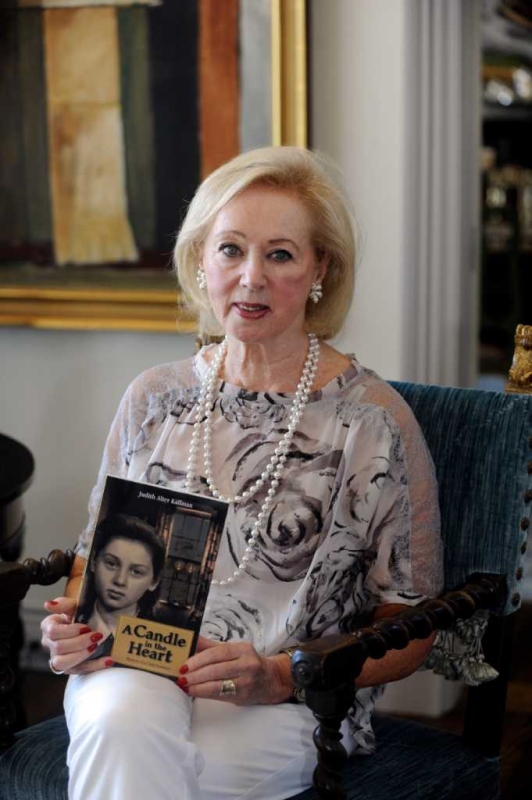Holocaust survivor Judith Kallman of Greenwich, Conn., will speak on Tuesday, June 4, at 5 p.m. in the Nott Memorial.
“At a time when antisemitism is surging all over the world, this is a rare and important opportunity to hear one of the few living survivors of the Holocaust tell their story in person,” said Laiky Rubin, adviser to Chabad at Union, which organized the event.
Kallman’s talk is free and open to the public. It is co-hosted by Chi Psi, Delta Phi Epsilon, Hillel, the Department of History, the Religious Studies Program, Sigma Chi, Sigma Delta Tau and Sigma Phi.
Stephen Berk, the Henry and Sally Schaffer Professor of Holocaust and Jewish Studies, will give opening remarks.
Judith Mannheimer Alter Kallman was born in Piestany, Czechoslovakia, the youngest of six children of parents of German, Czech and Hungarian heritage. After the Nazis invaded their hometown, the family fled to another town where they tried to pass as non-Jews, before the German Gestapo troops confronted them.
Kallman was 5 in 1942 when she saw her parents for the last time as they boarded a cattle car bound for a Nazi death camp.
“‘Choose life,” her father, a former shop owner, shouted. “Do not get on this train. Go away. Survive. Nothing else matters. Go and live.”
“The day I lost my parents was the day my childhood abruptly ended. Life stopped when the train pulled away, taking with it, I thought, the very core of me,” Kallman said.
And yet her instinct for survival surfaced.
“Pappa had done so much to keep us all alive. Even in that very last moment, he bravely and nobly urged life on us,” she recounted.
Kallman and her older brother were left to navigate the Holocaust on their own. They eventually landed in a jail cell in German-occupied Budapest, Hungary, where they were helped by a watchmaker, adoptive parents and Swiss diplomat who saved them from execution.
After the war, Kallman emigrated to Israel and attended high school in Tel Aviv. She married an American tourist, moved to the U.S., studied at the Fashion Institute of Technology and had three children. She is now a great grandparent.
After surviving the unspeakable, she has dedicated her life to sharing her experiences, believing that “speaking out can combat hatred and make the world a better place.”
She is the author of “A Candle in My Heart,” which chronicles her journey through the Holocaust.
The book has been showcased by the U.S. Holocaust Memorial Museum in Washington, D.C., and at the Museum of Tolerance in Los Angeles, as well as in teacher training workshops and in libraries across America, Israel and Europe.
It will be available for purchase in the Nott following Kallman’s talk.
Kallman has spoken of her story of terror and narrow escapes as “one that tells of what can happen when we assume that nothing will change; that life is static. But it is also a celebration of life, of my family’s triumph and the triumph of good people over the forces of evil."
